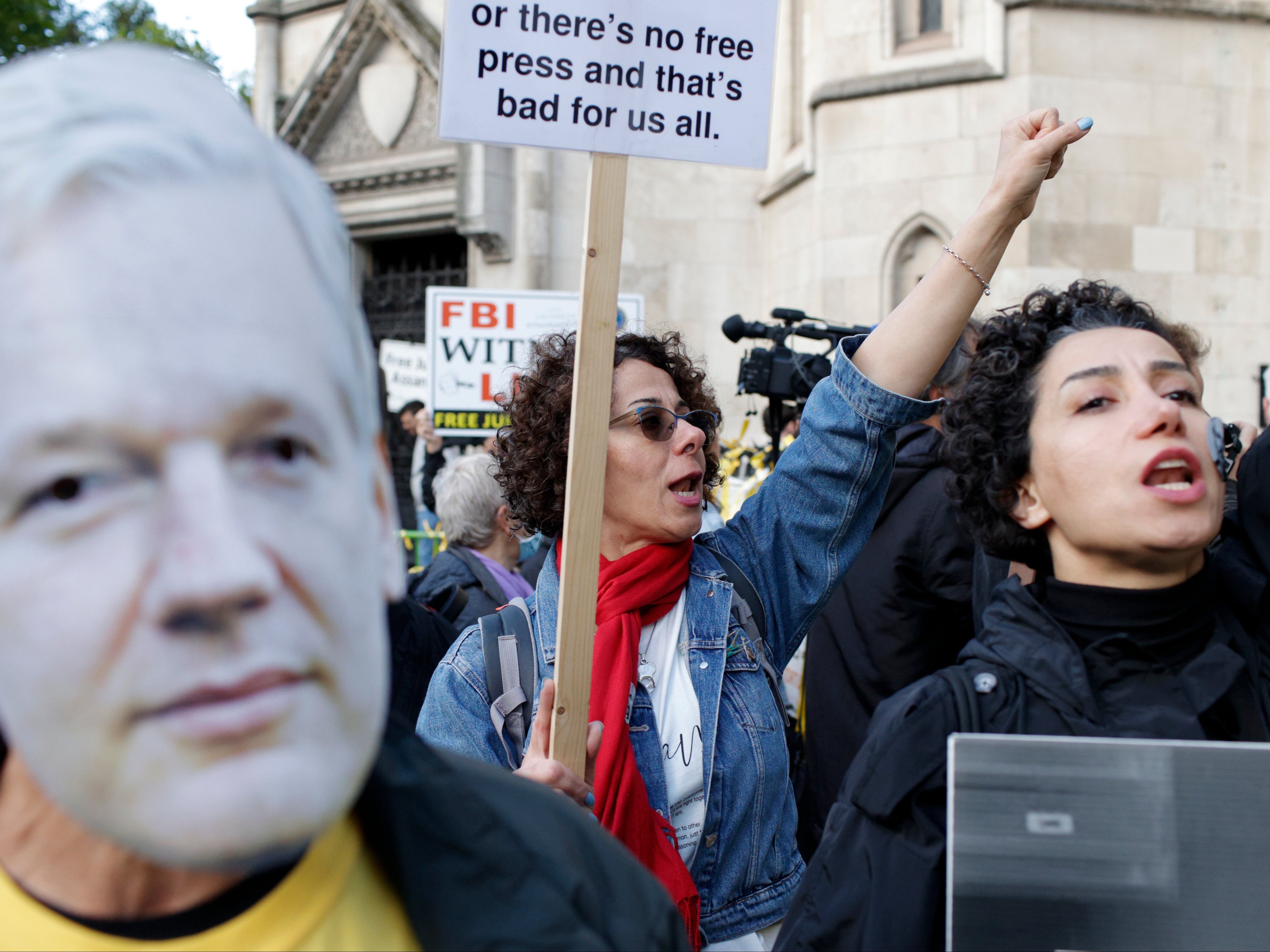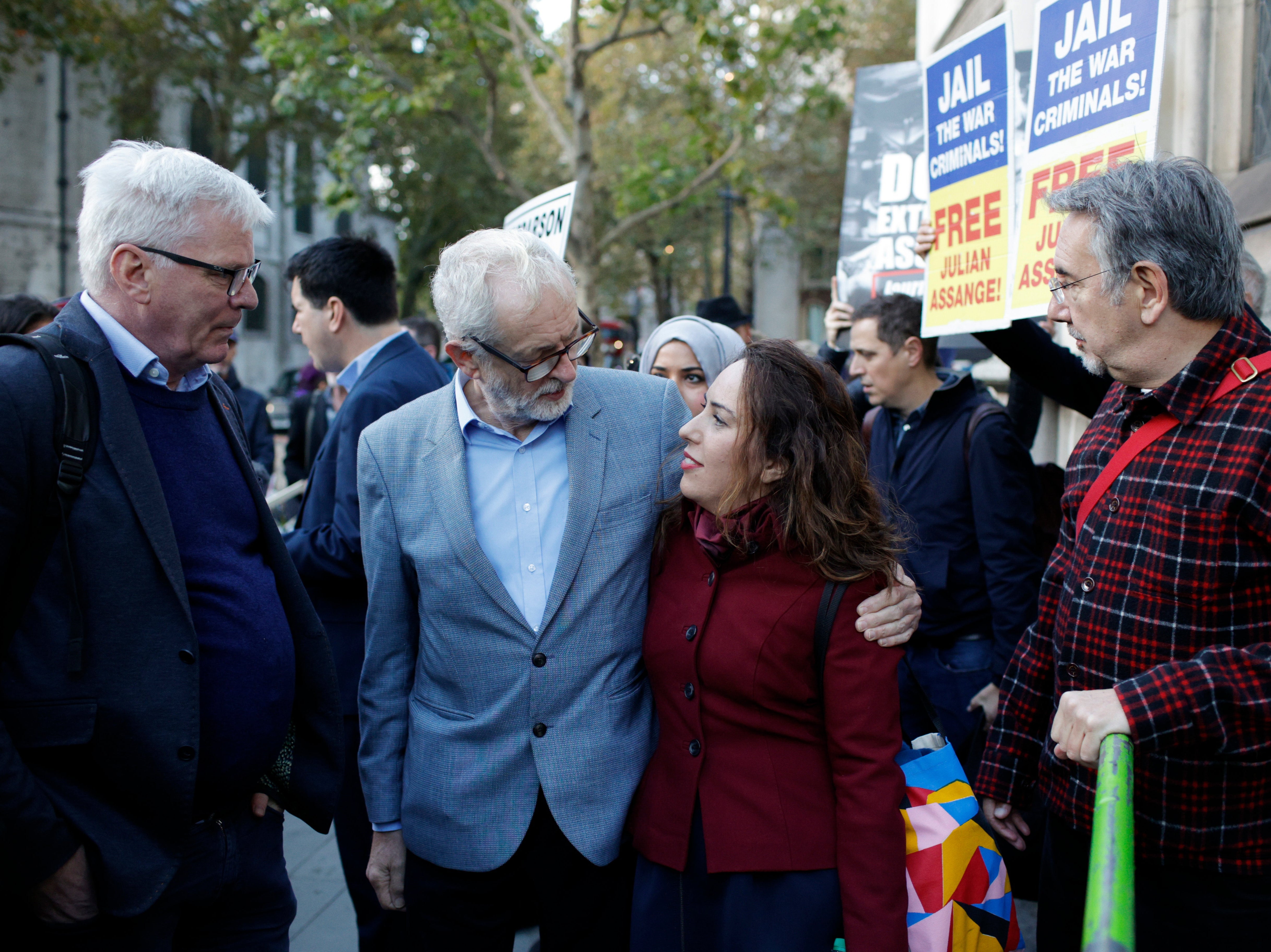Julian Assange: US promises over treatment of WikiLeaks founder not enough, argue lawyers
Assange has ‘committed no crime’ and should be praised, says former Labour leader

Your support helps us to tell the story
From reproductive rights to climate change to Big Tech, The Independent is on the ground when the story is developing. Whether it's investigating the financials of Elon Musk's pro-Trump PAC or producing our latest documentary, 'The A Word', which shines a light on the American women fighting for reproductive rights, we know how important it is to parse out the facts from the messaging.
At such a critical moment in US history, we need reporters on the ground. Your donation allows us to keep sending journalists to speak to both sides of the story.
The Independent is trusted by Americans across the entire political spectrum. And unlike many other quality news outlets, we choose not to lock Americans out of our reporting and analysis with paywalls. We believe quality journalism should be available to everyone, paid for by those who can afford it.
Your support makes all the difference.Lawyers for Julian Assange have argued promises by the US over its treatment of the WikiLeaks founder are not enough amid a bid to overturn the ban on his extradition.
Crowds of supporters gathered at the High Court in London on Thursday as the US continued its fight to extradite the Australian, wanted in America on allegations of a conspiracy to obtain and disclose national defence information following WikiLeaks’ publication of hundreds of thousands of leaked documents relating to the Afghanistan and Iraq wars.
Police stood guard at the main gates outside the court after they were closed off ahead of the hearing as dozens of supporters holding placards and chanting “free Julian Assange” out on the street. Later in the day, police confirmed one person had been arrested for obstruction of the highway after dozens of demonstrators blocked off the Strand - however the Committee to Defend Julian Assange said the person arrested had been involved in a separate and unrelated protest.
Assange, 50, did not appear via video-link from Belmarsh Prison as proceedings continued at the Royal Courts of Justice.
Speaking outside the court, former Labour leader Jeremy Corbyn said Assange should be “hailed” as a truthteller and released from prison.
“He’s committed no crime, and he’s in a maximum security prison,” he said. “In a different country he would be hailed as a whistleblower who told the truth about the dangers we are all facing, the dangers the whole world is facing.”
In January, District Judge Vanessa Baraitser ruled the Australian should not be sent to the US, citing a real risk of suicide. The judge concluded there was a real risk he would be subjected to “special administrative measures” (SAMs) and detained at the ADX Florence Supermax jail - a maximum security prison near Colorado - if extradited.
The US has since provided assurances, including that it would not impose SAMs on Assange or hold him at ADX Florence, and that it would consent to him being transferred to Australia to serve any prison sentence he may be given.

James Lewis QC, representing the US Court of Appeal, on Wednesday argued Baraitser “entirely based her decision” on the risk Assange would be submitted to special administrative measures.
However, Edward Fitzgerald QC, representing Assange, on Thursday argued suicide prevention measures may not be sufficient if someone is determined to take their own life.
Dismissing the assurances by the US as “meaningless” and not enough to overcome the risk of suicide, Mr Fitzgerald told the court: “People find ways to commit suicide whether they are clever or not clever but if they are driven.
“I do not accept Mr Lewis’ argument that once SAMs and ADX are taken out you can safely say the district judge would not have answered the relevant question as she did.”
Mark Summers QC, also defending, argued the language used by the US while giving the “conditional and qualified” assurances left open the possibility of Assange being subjected to measures such as SAMs, ADX Florence, a special housing unit or a communication management unit if extradited.
The defence barrister said the US had “every opportunity” to take SAMs or ADX off the table but chose to keep them for “tactical reasons” and was now attempting a “sea change”.

However Mr Lewis said it was “absurd” to suggest the US should put in conditional assurances without there first being a concern or finding by the court.
He said giving the assurances in court was the “perfect and proper way of doing so” and that providing any assurances before the district judge’s findings could have hindered the US’s case.
Assange’s barrister also challenged Mr Lewis’ claim that evidence from Assange’s psychiatric expert, Professor Michael Kopelman, should have been dismissed after he was found to have “misled” the district judge.
He said it was “not true” the district judge found the professor had misled the court and said alleged “omissions” over Assange’s relationship with Stella Moris were born out of an “understandable caution” over identifying his partner following reports she and her children were being targeted, as well as an alleged plot to kidnap or poison Assange while he was at the Ecuadorian embassy in London.
He told the court there was no “tactical advantage” gained by not revealing the relationship.
Assange has been held in Belmarsh Prison since 2019 after he was carried out of the Ecuadorian embassy in London by police before being arrested for breaching his bail conditions.
He had entered the building in 2012 to avoid extradition to Sweden to face sex offence allegations, which he has always denied and were eventually dropped.
Concluding the two-day hearing at the High Court, the Lord Chief Justice Lord Burnett said he and Lord Justice Holroyde had been given “much to think about” and that it would “take some time” to reach a decision.
This article was amended on 15 November 2021 to include the statement from the Committee to Defend Julian Assange that the person arrested in the Strand had been involved in a separate and unrelated protest.




Join our commenting forum
Join thought-provoking conversations, follow other Independent readers and see their replies
Comments